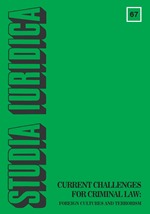
EUROPEAN PRISON RULES BUT THE POLISH LAW AND THE PENITENTIARY PRACTICE
EUROPEJSKIE REGUŁY WIĘZIENNE A POLSKIE PRAWO I PRAKTYKA PENITENCJARNA
Keywords: Rada Europy; Europejski Reguły Więzienne; Reguły Minimalne
More...
Keywords: Rada Europy; Europejski Reguły Więzienne; Reguły Minimalne
More...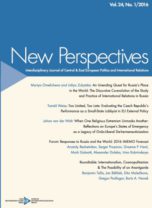
Keywords: Bosnia and Herzegovina; Muslim; Croat; Serb; Bosniak; encounter; deconstruction;reconstruction;
The most serious problems in Bosnia and Herzegovina today are linked to the political practicesof conflicting visions of nationhood and statehood. The international intervention in thecountry was expected to create self-sustaining political institutions and then withdraw. However,the fact that the intervention is ongoing shows its failure to do so. Many scholars haveengaged this issue, but this article shows that some of the analyses that have been most criticalof the international intervention also bring problems of their own. The article focuses onthe encounters between collective Subjects and the ways they have been constituted in relationto one another. It warns that without carefully identifying these Subjects we risk seriousmisinterpretations, such as equating BosnianMuslims, Bosniaks, and Bosnians. This misinterpretationoccurs in two major critical works in IR’s ‘poststructuralist canon’ that purport tocritically engage the situation and, particularly, the international intervention in Bosnia andHerzegovina –David Campbell’sNationalDeconstruction and LeneHansen’s Security as Practice.Campbell and Hansen rightly criticize the International Community’s ethno-cultural essentialism,but in their critique they apply Campbell’s radical-idealist version ofmulticulturalism.Based upon the ideal of a community without essence and the principle of affirming culturaldiversity without situating it, this approach is not able to identify the Subjects involved or theunwelcome radicalization of the excluded Subjects, which leads to flawed conclusions as tohowto sustainably resolve their conflict. In providing an academic corrective to such a hyperliberalbias, this article seeks to increase the room-for-manoeuvre of those who seek to createself-sustaining political institutions in Bosnia and Herzegovina.
More...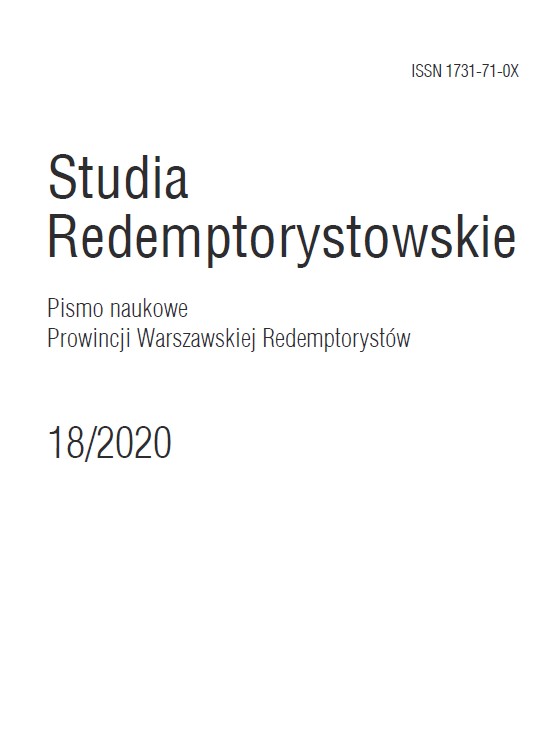
Keywords: social friendship; attitude fundamental; benevolence; contemplation; Pfänder;
This article aims to shed some light on how spiritual friendship (the deepest form of friendship that necessarily implies contemplation) is a prerequisite of ‘social friendship’ – the key to any good politics. I elucidate two essential aspects of this relationship between friendship and politics: disposition (or, attitude) and reflection in terms of contemplation. The required attitude – a deeper concept than disposition – for any friendship is benevolence. I argue, along with Pfänder, that there are different kinds and grades of dispositions that can be distinguished from attitudes. Furthermore, I point out (with reference to Scheler’s analysis) that a fundamental attitude (‘Grundgesinnung’) exists, and I describe the nature of the possibilities inherent to it. In the second part, I introduce the notion of ‘Besinnung’ with its three variations of reflection, meditation and contemplation. Finally, I argue that there is an essential relationship between the highest form of benevolence (as the manifestation of the positive fundamental attitude) and the highest form of the contemplation of friendship. Penetrating into these two phenomena both intellectually and existentially, one might better understand the gift of friendship. In friendship, the other person reveals themselves not only as this specific person, but also as a person with the utmost clarity. I argue that without these fundamental insights, one can hardly imagine any just political community.
More...Keywords: Proper noun; Decision of translation; Theory of polysystems; Norms in translation; Standard Lithuanian language; Molière's play “The Tartuffe”;
Translation is not an isolated field of activity. It is closely related to the certain historical, political, ideological, socio-cultural, and sociolinguistic context of a country, i.e., translation depends on polysystems of a particular period of time. The article examines two different translations of Moliere's play “The Tartuffe” into Lithuanian. “The Tartuffe” was first translated by Sofija Čiurlionienė-Kymantaitė in 1928 and later in 1967 by Aleksys Churginas. This research is based on the polysystem theory of Itamar Even-Zohar and Gideon Toury's theory of norms in translation. For the analysis of the translations of the theatre play, proper nouns were chosen as the object of the research. The analysis was done using comparative, linguistic descriptive and quantitative methods. These methods assisted in comparing decisions of translation used to translate proper nouns of “The Tartuffe”. Moreover, the analysis reveals the tradition of translation of proper nouns and the changes during the Interwar and Soviet Lithuania periods. In order to achieve the aim of the research, the objectives are as follows: to discuss the activity of translation as a part of the polysystems, to select and classify proper nouns of the research material according to translation decisions chosen by each translator, to review its validity and to discuss translation changes of Lithuanian translation tradition from the beginning to the end of XX century. After a comparative study of the translation of personal nouns in the research material, the author identifies and discusses five translation decisions: phonetic adaptation, omission, grammaticalization of the authentic form, replacement into another proper noun and actualization. Both translators mainly used phonetic adaptation, i.e., linguistic application of proper nouns. Looking towards both translations from the perspective of the social norms theory of Gideon Toury and the theoretical concept of polysystemical and binary oppositions of Itamar Even-Zohar, it can be assumed that translating Moliere's play "The Tartuffe", which belongs to the world literature canon, both translators (S. Čiurlionienė-Kymantaitė and A. Churginas) accepted the translation challenges of classical literature, understood the value of the work and the importance of maintaining the uniqueness of this theater play which belongs to Classicism. A comparative analysis of translation of the proper nouns allows identifying the dynamic formation of the tradition of proper nouns translation and its changes in Lithuania starting from quite diverse decisions of translation during the Interwar period, which was characterized by a free translation market, unrestricted selection of translations and their adaptation to the sociocultural and linguistic expectations of the readers, to the development of centralized and institutionalized norms in translation during the period of Soviet Lithuania, which was marked by unanimously applied rules of translation of the proper nouns and norms of the standard Lithuanian language. The results of the comparative research of the translation of the proper nouns allow us to confirm that the first translation, published in 1928, introduced Molière's play to the Lithuanian culture of translation but became obsolete. Thus, almost forty years later, in 1967 there was a need for a new version of translation of “The Tartuffe” that would be adapted to a contemporary period in which cultural systematic knowledge and the usage of cultural elements and language differed from the first translation version.
More...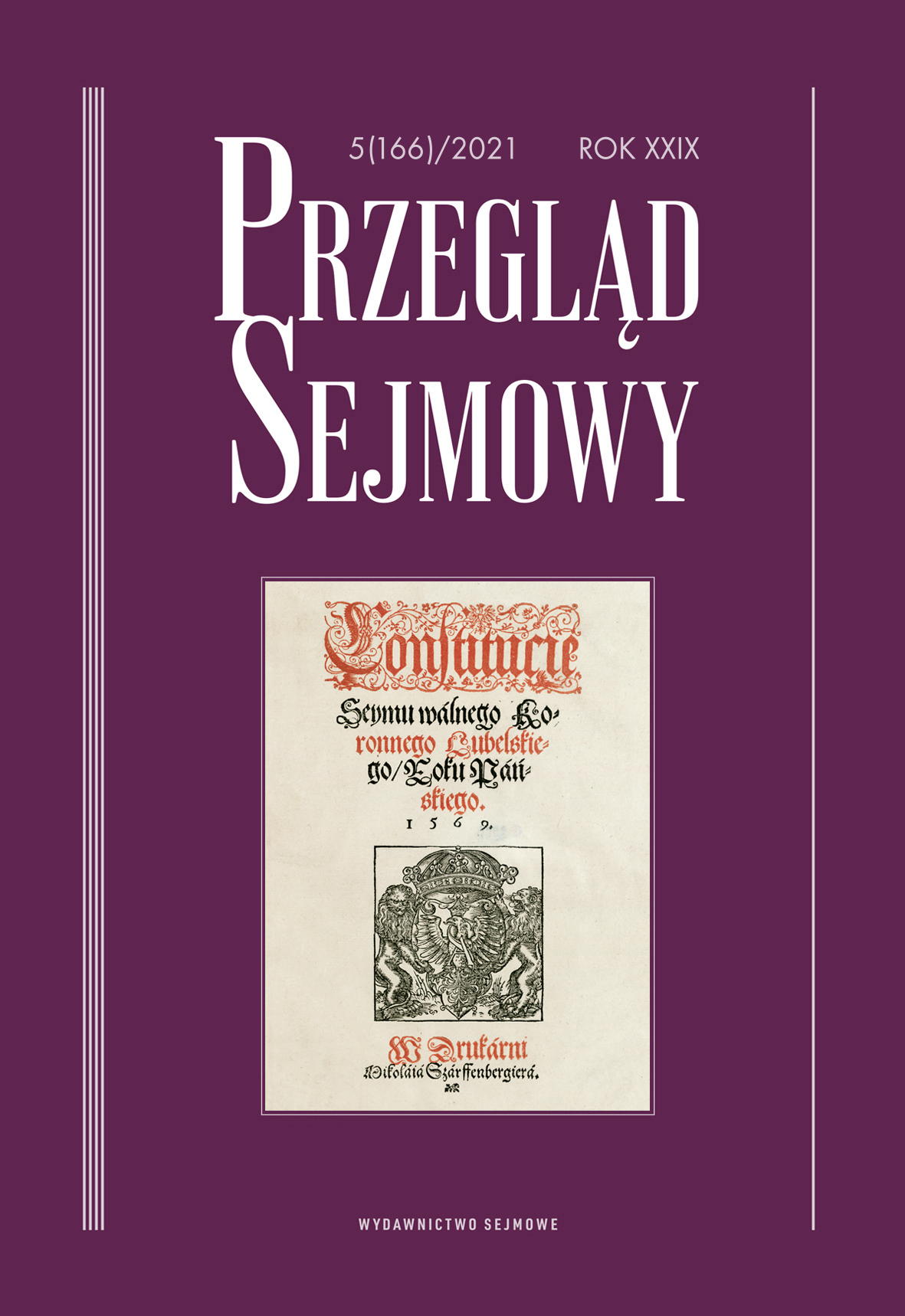
Keywords: European Union; European Parliament; parliaments of member states;political system of the European Union;
The authors attempt to examine two parallel and often treated as incomplete processes of strengthening the competences of the European Parliament and at the same time defining a place of national parliaments of Member States in the political system of the EU. The parallelism of these phenomena may seem paradoxical, since it can be assumed that despite competency competition between the EP and the national parliaments, strengthening the competences of the former does not preclude maximising the competences of the latter. The system of unification and harmonisation present in ¬¬¬the European Union does not have to weaken national parliaments. The more so that the parliaments of the Member States try to neutralise the autonomy of EU institutions, which “appropriate” their current field of play. The analysis was made based on a research sample consisting of methods for strengthening the EP and methods for maximising the parliaments of the Member States.
More...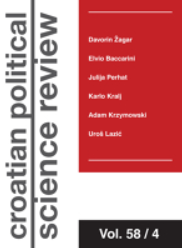
Keywords: Christianity; Corruption; Lefort; Machiavelli; Sullivan; Tyranny;
In the first part of the paper the author presents the key theses of Vickie Sullivan’s reading of Machiavelli. Sullivan argues that, in order to prevent corruption, Machiavelli innovatively reworks elements of Christian teaching for entirely temporal purposes and offers a specific, modern solution, ‘new Rome’, in the form of an irreligious, fearful republic which early and effectively punishes the ambitious few seeking to establish tyranny. In the internal realm of the city, the Florentine reduces class desires of the plebs and the greats under the common goal of acquisition. A bellicose, tumultuous republic satisfies the desires of all the social actors, resulting in a lasting political order. In the second part the author critically engages with Sullivan’s interpretation, drawing on Claude Lefort’s interpretation of Machiavelli. Surprisingly, Lefort’s groundbreaking work on Machiavelli has been absent in Straussian readings of the Florentine. By highlighting the authentically democratic nature of Machiavelli’s project, in contrast with Sullivan’s reading, an entirely different ‘new Rome’ arises on the horizon.
More...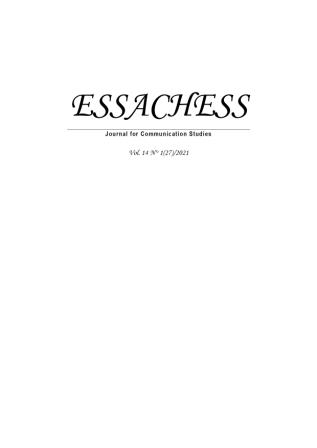
Keywords: discourse analysis; aphorisation; sound bite; José Mujica; Cristina Fernández de Kirchner;
This article describes the linguistic function of sound bite phrases in the discourse of two Latin-American left-wing politicians, Cristina Fernández de Kirchner in Argentina and José Mujica in Uruguay, and analyzes the echo that these phrases have in the media. The purpose is to study whether their usage in the media-political scenario is a phenomenon with identifiable idiosyncratic discursive mechanisms.
More...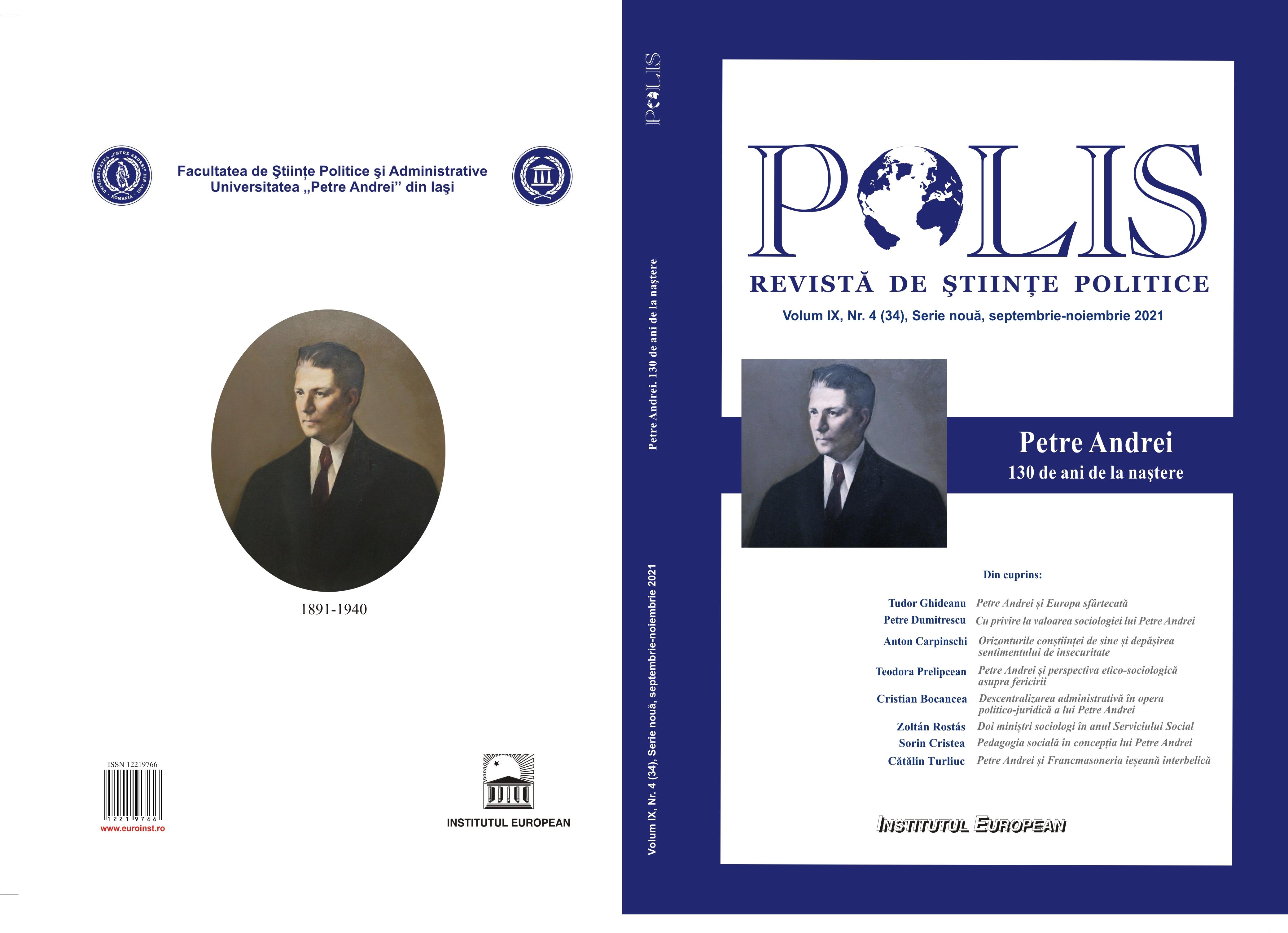
Keywords: new-speak; compliance; submission; democracy; objectivity; Romania
New-speak is to be unraveled as the ultimate process of transition from one dominant logic to another. Generally, before new-speak, the reality is mastered through a complex process of change of rationally constructed arguments. Public space is conceived as being produced by a long series of interactions that are permanent, consistent, multiple and free of all constraint. A market of rationally constructed arguments works for both the consistency of a community as well as for the consolidation of objectivity. With censorship, self-refraining, threats and menaces, the long lasting interactions on a free basis are no longer valid. The official power discourse that replaces common objectivity fosters a completely new reality, enforced by the overwhelming control of all kinds of old and new media. With the current epidemic situation in Romania, the official power discourse and the widespread coercion push the individuals once again in what was familiar to their parents and grand-parents, namely into a simulated external conformity, making thus room for an internal, yet quit personal inner liberty.
More...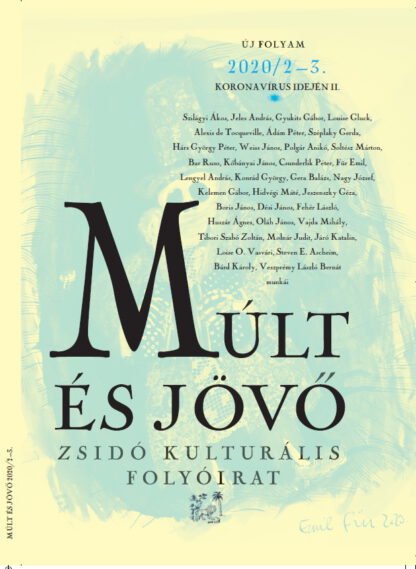
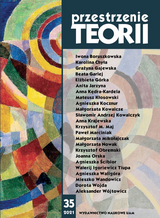
Keywords: Stefan Żeromski; madness; creativity; affect theory; private diaries;
Using the tools offered by affect theory, this article aims to present the theme of madness, its numerous incarnations and transformations in the text of the diaries that Stefan Żeromski left behind. Madness is depicted here as a phenomenon defying any kind of unambiguity; it can be anything from a secret of nature to be deciphered, through a creative frenzy of inspiration, to a state of apathy, sometimes interwoven with sudden ecstasy, triggered by the chronic hunger that Żeromski suffered as a young man, in other words: during his diarist period.
More...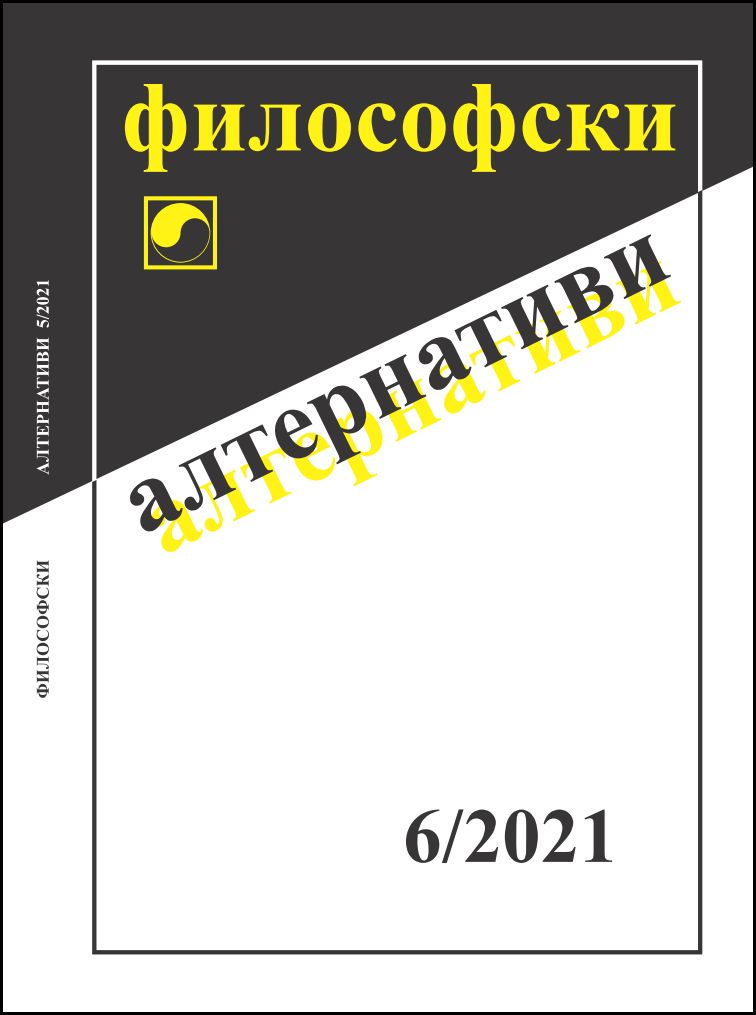
Keywords: psychoanalysis; discourse; knowledge; truth; research; cure; Freud; Lacan; Foucault;
The paper intends to outline the parameters of a conceptual analysis on the so-called “dogma of the inseparable bond” (das Junktim dogma), which is said to exist between the processes of cure and research in the psychoanalytic interaction. Using Michel Foucault’s strategy of “returning to the origin”, which, according to the French thinker, marks the status of discourses, whose very possibility figures like Freud and Marx articulate, we argue that each analysis has its obligation to produce specific psychoanalytical knowledge about the unconscious and its functioning. It follows that the analyst–apart from their primary role in the course of treatment–is charged, by the very fact of their being an analyst, with the absolute responsibility of broadening the horizons of analytical knowledge.
More...
Keywords: shadow economy; tolerance; Shadow Economy; Tolerance Index;
The article proposes an innovative methodology and concept for the design and calculation of the Shadow Economy Tolerance Index (SETI), which is without analogue in European or Bulgarian research practice. The need for its construction is related to the fact, established in previous studies on the shadow economy, that there is a tendency among the Bulgarian population to view deviant economic behavior as acceptable, as the “new normal”, and that nearly two thirds of Bulgarians apply various models of deviant (shadow) economic behavior. In structural terms, the SETI Index is to comprise three components, each of which includes 10 indicators: Component 1. Basic notions and attitudes towards the shadow economy; Component 2. Psychological readiness to take part in shady practices; Component 3. Level of real involvement in shady practices. Each of the three components has a different relative weight, namely: 50:35:15. The first calculation of the SETI Index will be made in early 2022 on the basis of empirical data collected in a national representative survey of the population in Bulgaria and will subsequently be repeated every two years. The necessary information will be collected through a specially designed online questionnaire. The questionnaire will be filled in by the same panel of respondents in order to ensure the representative quality of the information.
More...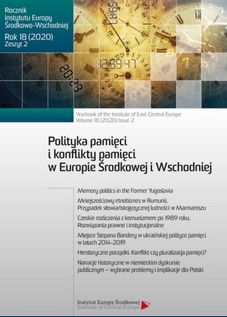
Keywords: herstory; conflict of memory; pluralization of memory; politics of memory;
The issue of conflicts of memory is one of the more clearly outlined areas in contemporary Polish discourses of memory. One of its manifestations is Herstory, which involves discovering the forgotten history of women and restoring their rightful place in the public sphere, which also translates directly into issues of social and national identity, and historical policy. In the article we try to decide whether and to what extent herstory as a research approach create a caesura in the memory studies? We put the thesis about the existence of two oppositional currents – the alternative and radical turns of memory, and we are proving that herstory does not so much fit into this opposition as it functions across it, building pluralist discourse. Due to the specific nature of the data used in the text and their transdisciplinary nature, and given the anthropological and political research perspectives that are close to us, we base our research and conclusions on Gadamer’s hermeneutics, without which it is difficult to speak of both interpretationism and herstory itself.
More...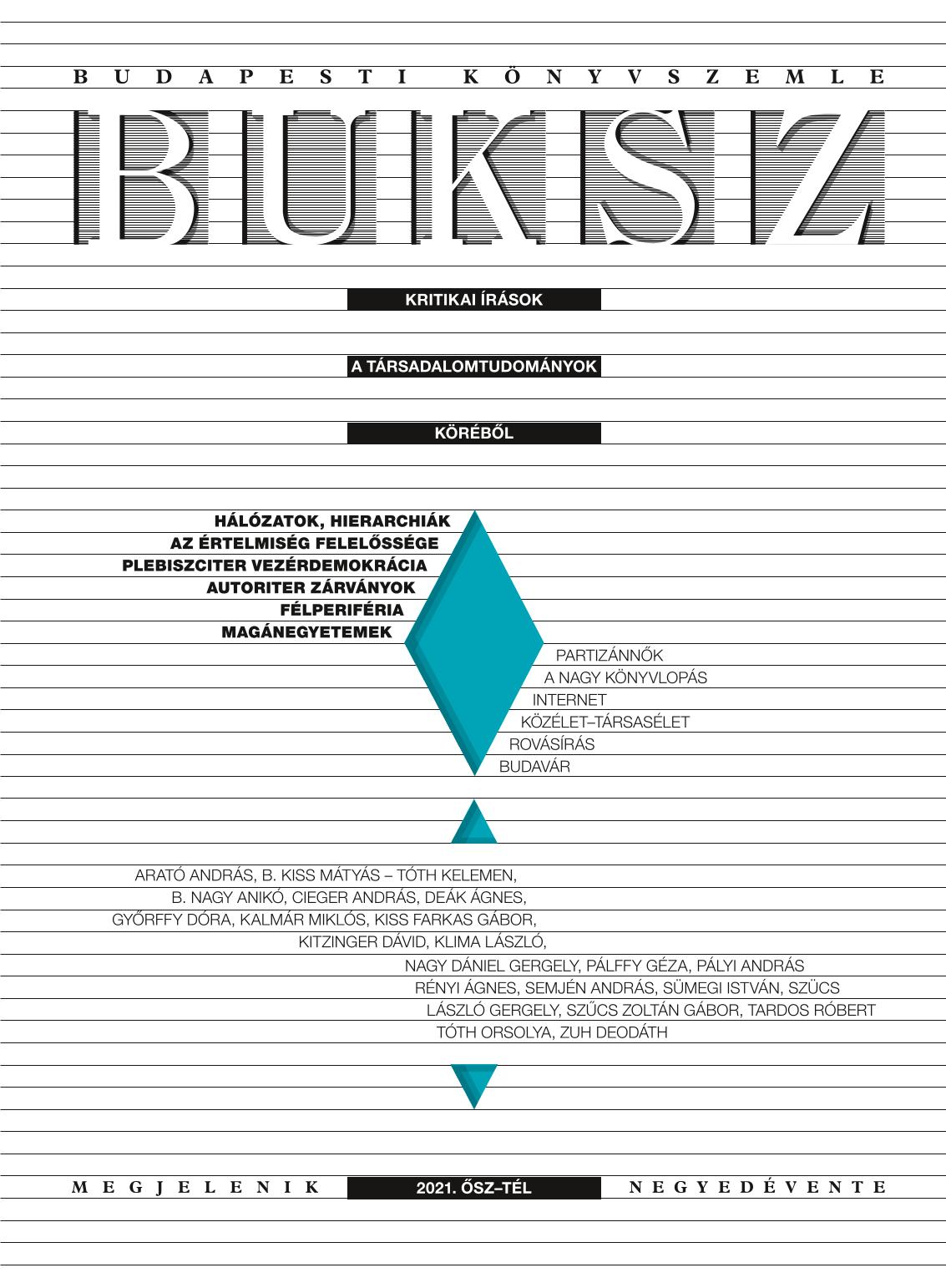
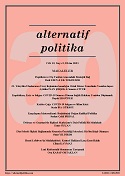
Keywords: Encounter; Void; Althusser; Machiavelli; Conjuncture; Virtù; Virtual;
In this study, moving from the French philosopher Louis Althusser’s posthumously published texts The Underground Current of the Materialism of the Encounter and Machiavelli and Us, we will try to reflect on the potentialities of a radical politics in the current conjuncture. Proposing that these texts correspond to a new and unexpected position in Althusser's philosophical pursuit and in his effort to reflect on the conditions of political practice, we will be looking for ways to improve this position towards an “aleatory politics” by means of thinking not only of Althusser but also with and in spite of him. In such a conjuncture in which authoritarian leaders and regimes are on the rise in different parts of the world in parallel with the decline of the left politics and the catastrophe created by the global pandemic articulated with the destructiveness of neo-liberalism, we will examine the potentialities of Althusser's new position to reconsider a radical politics outside the status quo. In this way, we will also have the opportunity to rethink Althusser as an up-to-date philosophical figure.
More...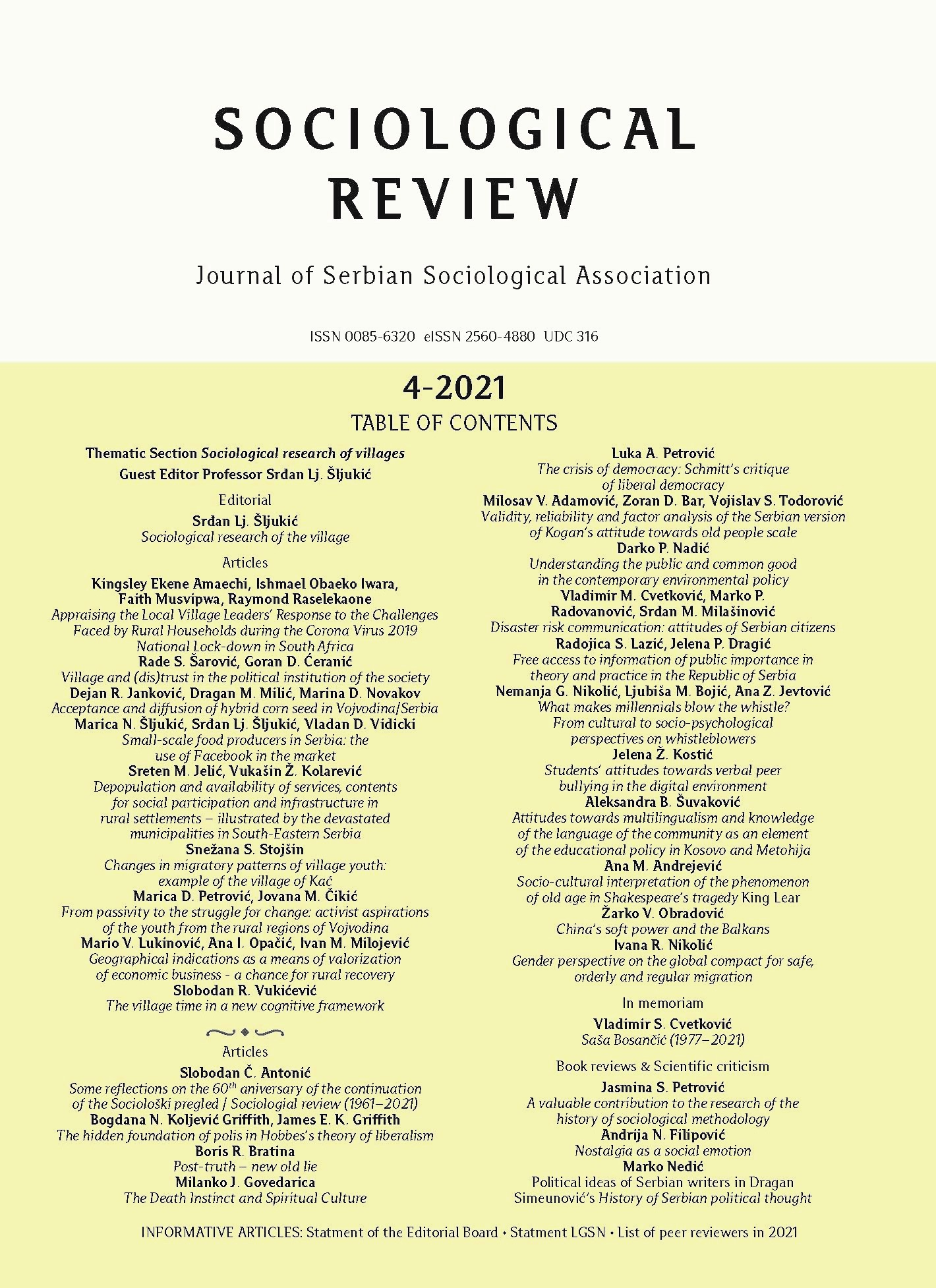
Keywords: post-truth;truth;coherence;technique;technology;subjectivity;
The idea of post-truth, although the phrase itself has its previous use, has become fashionable in the last five years and after being declared the “word of the year” in the Oxford Dictionary. The author of the paper examines the limits of theoretical fertility of this concept, placing it first in the context of truth theories, and then determining its specific theoretical weight. In the exposition of his consideration of this concept, he uses the comparative-phenomenological method and interprets its definitions in a critical-reflexive approach. Uncritical acceptance of the validity of the conceptual description of post-truth leads to the illusion that we have entered a new post-epoch that is something objective and inevitable, organized not on argumentation but on playing with other people‘s feelings. Of course, there is something in the idea of post-truth: the state of post-truth must be nothing new, if its realization did not include an exponentially developed communication technique, to which manipulative postmodern subjectivity stands as a subject a never before. On the whole, the phenomenon of post-truth belongs to a wider group of phenomena such as fake news and many others, which united together form a huge potential for falsifying the experience of reality. Finally, when the idea of post-truth according to its elements is included in a broader structure, it becomes calculable both in the history of ideas and in the interpretation of concrete events within intersubjective relations. The author believes that the path to truth, if there is truth, leads through the theoretical negation of this ideological intervention. The aim of this paper is to show that, when it comes to post-truth, it is a phenomenon that does not have its own independent existence.
More...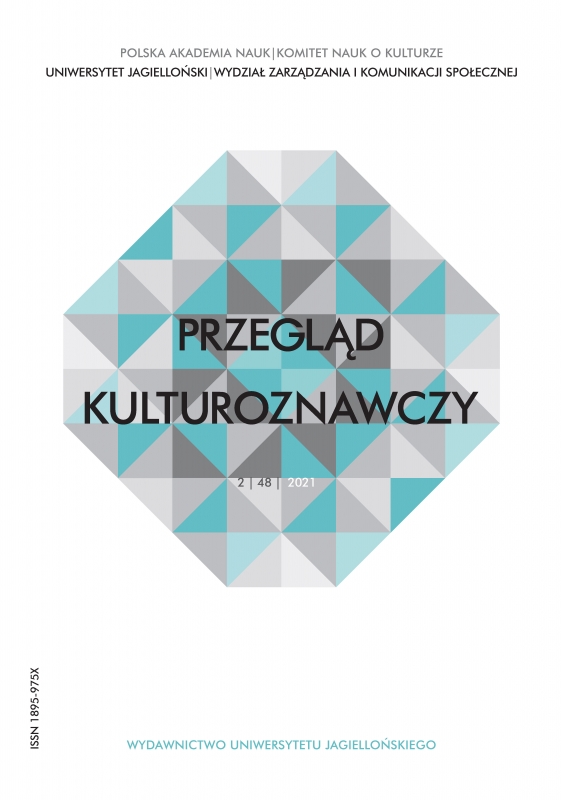
Keywords: blue humanities; water; ocean; sea epistemologies; Polynesia; blue anthropology; hydro-politics; sea metaphors; ship as metaphor; Polynesian canoe; Pacific studies; climate crisis; water in anthropolo
In this article, I would like to consider the comparison of stranding to landcentric cognitive processes that translate into the creation of an impossible world – devoid of water and its potentials, rhythms and cycles immersed in it. I will illustrate this with examples of fresh water and sea hydro-policies (including nuclear trials in the Pacific) and will explore cognitive and activist alternatives proposed by the Polynesian sailors and navigators. I will also use two ambiguous metaphors of a ship and a Polynesian voyaging canoe as an opening for different narrations of the planets’ future in the climate crisis.
More...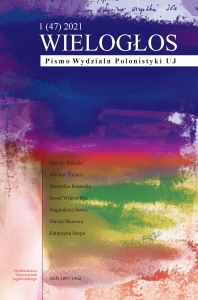
Keywords: Charles Baudelaire; melancholy; spleen; blackness; aesthetics of transient beauty; écriture mélacolique
This article focuses on Charles Baudelaire’s poetics of negativity which exploits absence, blackness, negation, defectiveness, associated by the poet in a paradigmatic way with melancholy and the aesthetics of transient beauty. The basis of the proposed interpretation is the paradoxical metaphor of luminous blackness (a black sun, a radiance without source, a black star, a black canvas), which the poet exploits in his metatextual works. The paper focuses on poems in which Baudelaire approaches that which is beyond the limits of expressibility and is symbolised by blackness and emptiness. Baudelaire’s melancholic poetry appears as a poetry about poetry, a poetry that is paradoxical in the sense that it contradicts stillness, acedia, and creative stagnation, while retaining its negative dimension, rising up against itself.
More...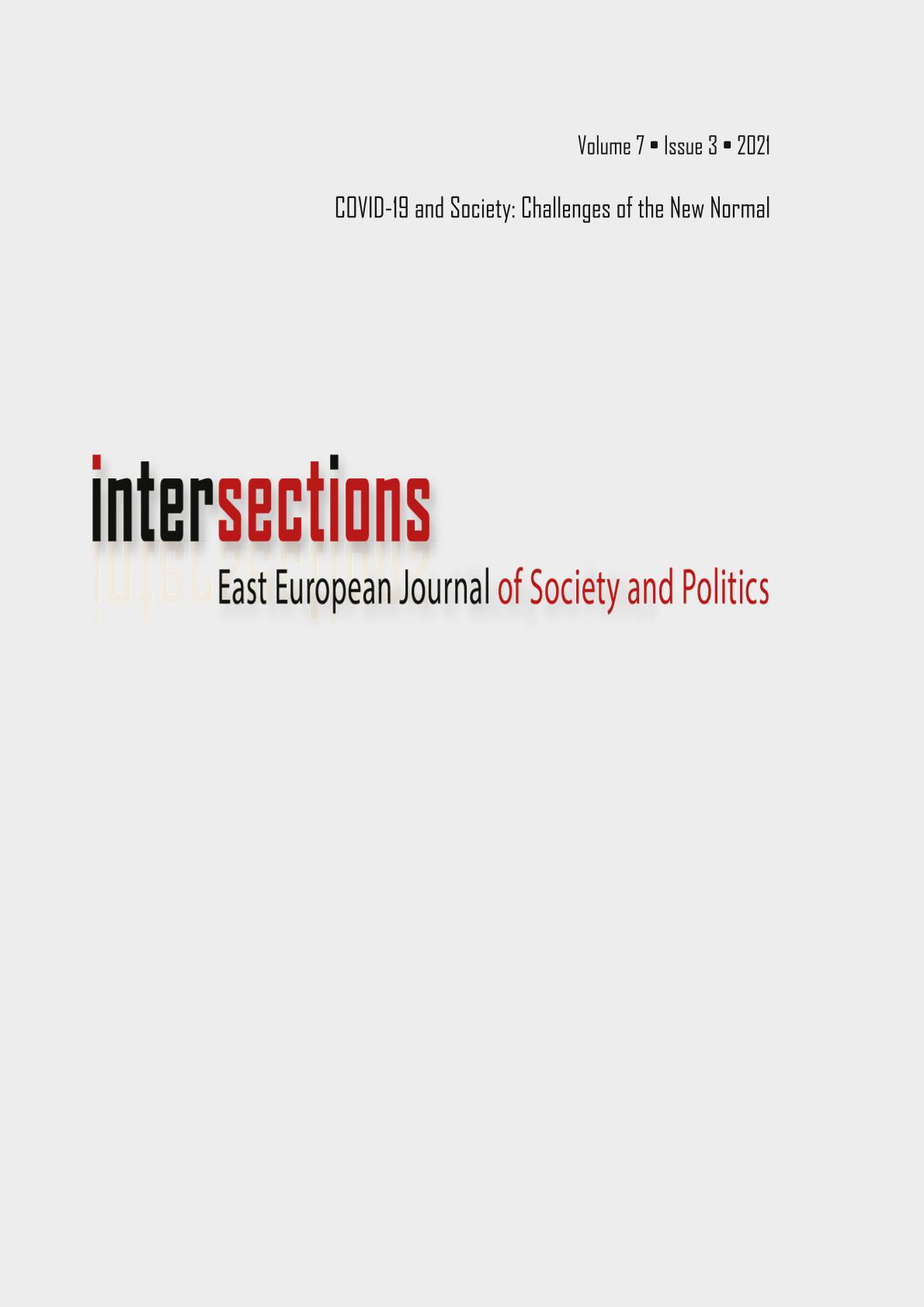
Keywords: changing patterns of getting married; COVID-19; micro-weddings; social and legal structures and rules; agency; individual decision-making
Based on my digital anthropological research (nethnography, online surveys, and in-depth interviews) this paper will examine the individual decision-making processes and choices related to getting married during times of COVID-19 in Hungary. The paper raises questions about the extent to which these choices and decisions were individual and reflexive, and how they were influenced or restricted by legal structures and contexts. Using classical and contemporary social theories about decision-making (structuralist and reflexive approaches), on the one hand I aim to explore the structural and contextual circumstances of making decisions about whether to go ahead with, hold-off, modify, postpone, or cancel wedding plans. On the other hand, I study the individual ‘decision horizons’ as well. Through examining discourses surrounding weddings as well as through case studies, I look at how social actors identify and perceive their options and how they perceive and interpret the related structural constraints, contexts, and rules. The results emphasize that despite – or rather in the face of – changing circumstances, many couples sought new opportunities and new means of adapting, but in the meantime they recognized and interpreted the structural constraints that could potentially influence their weddings, maneuvered between them, or just overcame or circumvented them, and at other times sought to create new structures through their individual and community practices.
More...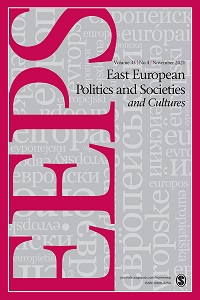
Keywords: travel writing; fascism; transnationalism; wartime Croatia; Ustasha regime;
This article analyses the use of Europeanizing discourses in the travel writing of Croat visitors to the Third Reich. Situating these visits in the context of transnational exchanges in Hitler’s new Europe and the war against the Soviet Union, it considers a number of specific case studies of travel between Croatia and Nazi Germany. It argues that the European discourse of writers, journalists, and youth activists in the Ustashaled Independent State of Croatia served a number of specific purposes. First, they created a space of normality in an extremely violent state, providing an illusion of stability. By bringing the sights, sounds, and pleasures of travel to the near abroad back to Croatia in the form of books, magazine articles, and mobile film reels, they also gave citizens a glimpse of the good life, consumption, and materiality. As such, these travelogues and accounts of journeys overseas also aimed to persuade intellectuals and members of the cultural elite who did not support the Ustasha regime of the various material and professional “club goods” that might accrue to them by becoming active supporters of the regime. Furthermore, they served to create an impression of mobility in a surveillance state in which even internal travel was extremely restricted. Finally, in depicting Nazi-led war in the East and the struggle against the “East within”—in the form of the campaign of genocide against Serbs, Jews, Roma and so-called “asocials”— to building European brotherhood, modernization, and becoming an essential member of the new Europe, they became a source of regime legitimation, thereby telling us important things about the subjectivity of both the state and ideological tourists in a time of terror, war, and occupation.
More...